
A Special Form of Darkness
How do ideas of nihilism, darkness, the self, abjection and horror play out in experimental music and performance?
What we wrote about it at the time: How do ideas of nihilism, darkness, subjectivity and abjection play out in experimental music, performance art, supernatural horror; in neuroscience or philosophy? Or: how can you trust what you think or feel? A Special Form of Darkness is an open, convivial music/ performance/ ideas hybrid – a cross between a festival, magazine and discussion.
ReadHow do ideas of nihilism, darkness, the self, abjection and horror play out in experimental music and performance?
0.
In The Last Messiah, Peter Wessel Zapffe, in a state of bleak dread, concludes that consciousness is “a biological paradox, an abomination, an absurdity, an exaggeration of disastrous nature”. Could our self-awareness be an evolutionary mistake? After all, animals feel pain: conscious humans suffer.
1.
Can we imagine the World-Without-Us
In The Conspiracy Against the Human Race the horror writer Thomas Ligotti, confronted with our complete cosmological insignificance (and so the inanity of any thing we might do), and inspired by Zapffe’s realisation that the only right consciousness seems to bestow on us is the right to suffer, suggests that we should classify our existence as MALIGNANTLY USELESS.
But is there anything positive in this? Could a suspicion of our own consciousness be a necessary step in the furthering of thought, and indeed life?
2.
Realities and identities are upgraded like software
The literary critic Fredric Jameson has argued that neoliberal culture is full of the language of innovation and novelty, but culture has never been more standardised and homogenous…the only real novelty is in the way our realities and identities are upgraded like software, so that a settled sense of self becomes impossible.
What if he’s right: that our language, habits and desires, the ways we experience the world, our ideas of ourselves come to us pre-packaged? Are we all performing ourselves?
3.
I spit myself out
In Powers of Horror Julia Kristeva defines abjection as the state of being symbolically spat out or discarded: disgusting, excluded, repellent. Is our revulsion at bodily fluids, or our unease at seeing a corpse, a symbolic revulsion at the flimsiness of our own borders as a living being, as a self?
Is this a useful allegory to understand the disgust of people in power: revolted by or treating as inferior (not quite fully alive) any groups that threaten their own borders or identity? 1 And is art the place that explores the abject 2 , a place where boundaries begin to break down, a place before distinctions such as the self and the other, existence and non-existence?
4.
A special form of darkness
What’s powerful in these ideas of distrust, pessimism and disgust? How do we make sense of experimental musicians, performance artists, cultural critics, philosophers and scientists who doubt identity, existence and experience?
Is it OK to be suspicious of the blind love of what it is to be human? Or of how our identities are constructed? What if our naivety about those identities leads to a special form of darkness: if much more is going on than we’re aware of, are we in the dark exactly because we look right through what we should really see?
The Episode was reviewed in The List by Nick Herd and in The Skinny by Gareth K Vile.
Programme Events

Abject Music
Mattin Tim Goldie
Could they be one of the most ferocious live noise acts around, or a necessary and ludicrous parody of ferocious noise acts? Could they be both?
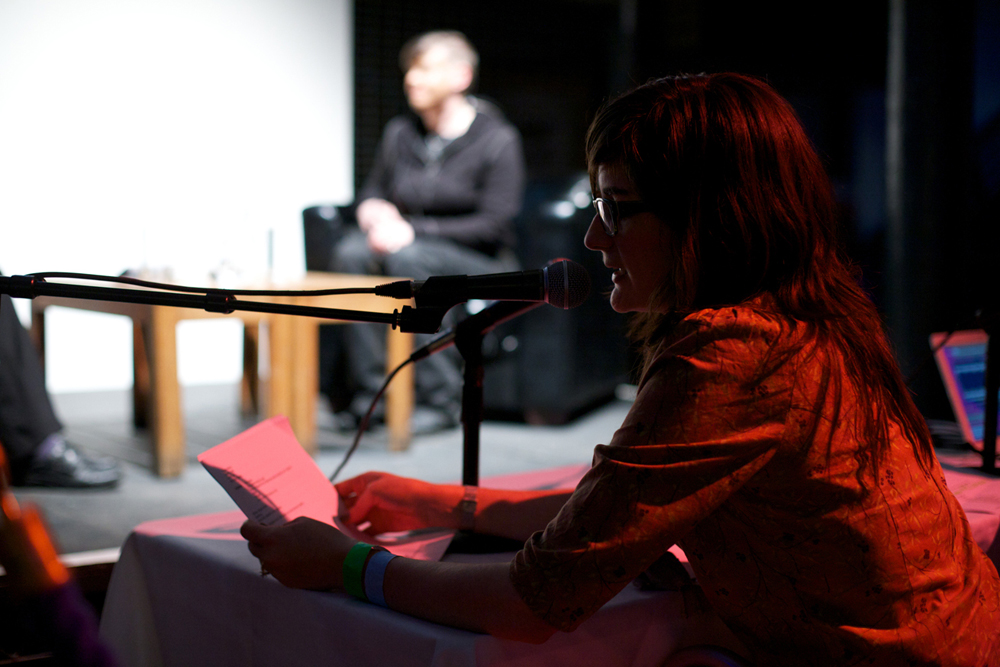
Only Your Pre Formance Is Cult
Amanda Monfrooe Iain Campbell F-W
A series of reality dramas happening over the course of the weekend.

De Musicorum Infelicitate
Esther Ferrer Walter Marchetti
‘Ten Pieces in the Form of Painful Variations’ for piano, an impossible score that looks like a grapeshot musical stave, a text of barbed loathing and doubt – an anti-composition.

The View From Nowhere Part 1
Ray Brassier Thomas Metzinger
Ray and Thomas talking about how cognitive neuroscience is unlocking the physical basis of personal experience.

The View From Nowhere Part 2
Alexi Kukuljevic Mark Fisher Ray Brassier
Has neoliberal capitalism locked down social experience? Are our seemingly subjective desires, our identities, pre-packaged by dominating social structures?
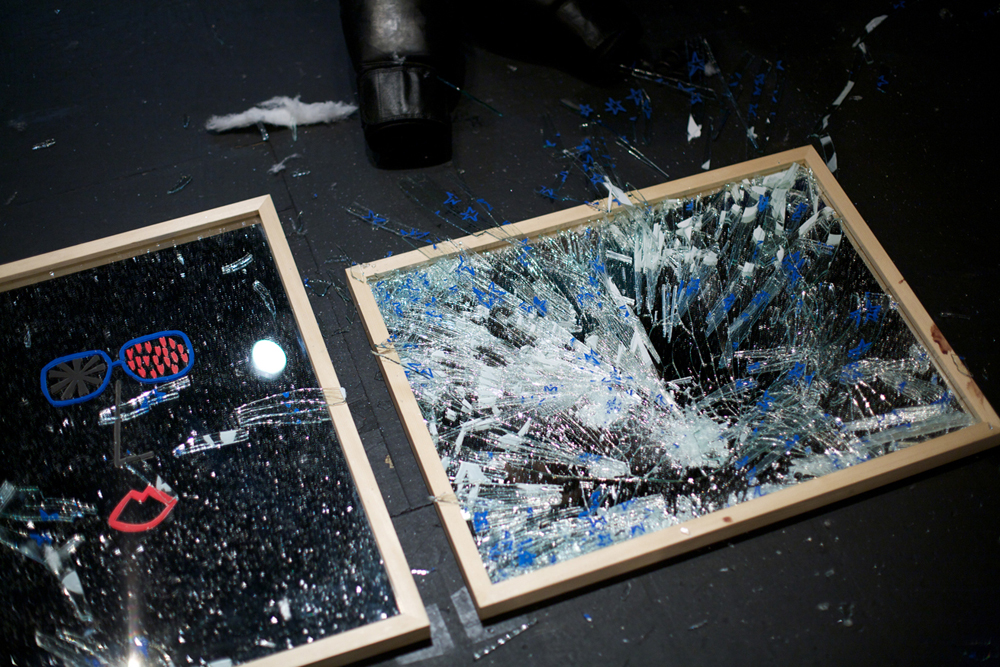
Rehearsal after Reflect Soft Matte Discourse
Clara López Imri Sandström Malin Arnell
A performed reflection on Malin’s previous re-enacting of a super influential landmark of performance art from the French feminist and artist Gina Pane.
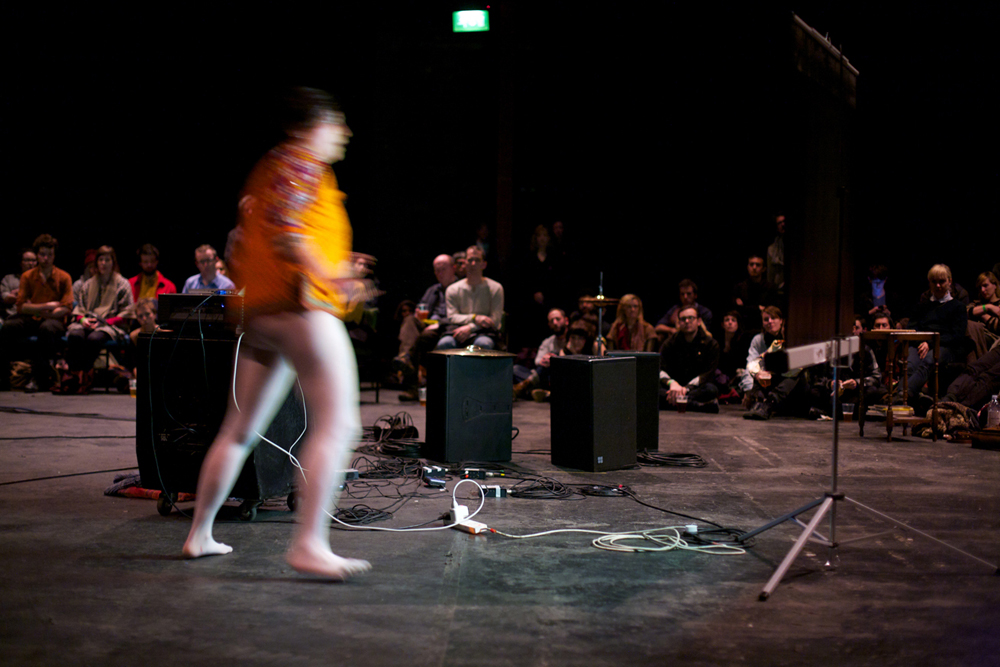
Become What You Are
Dawn Kasper
Slapstick comedy, monologue, and a kind of live sculpture transformed through video, props, musical instruments and make-up.

Junko
Junko
Harrowing but musical confrontations with the very real, physical and aural trauma of a woman screaming.

All the Colours of the Dark, Except Black
Evan Calder Williams
A chat, with examples (Zola, H. P. Lovecraft, Hammer Horror), about blackness and the sheer stupid thickness of what has no profundity whatsoever.
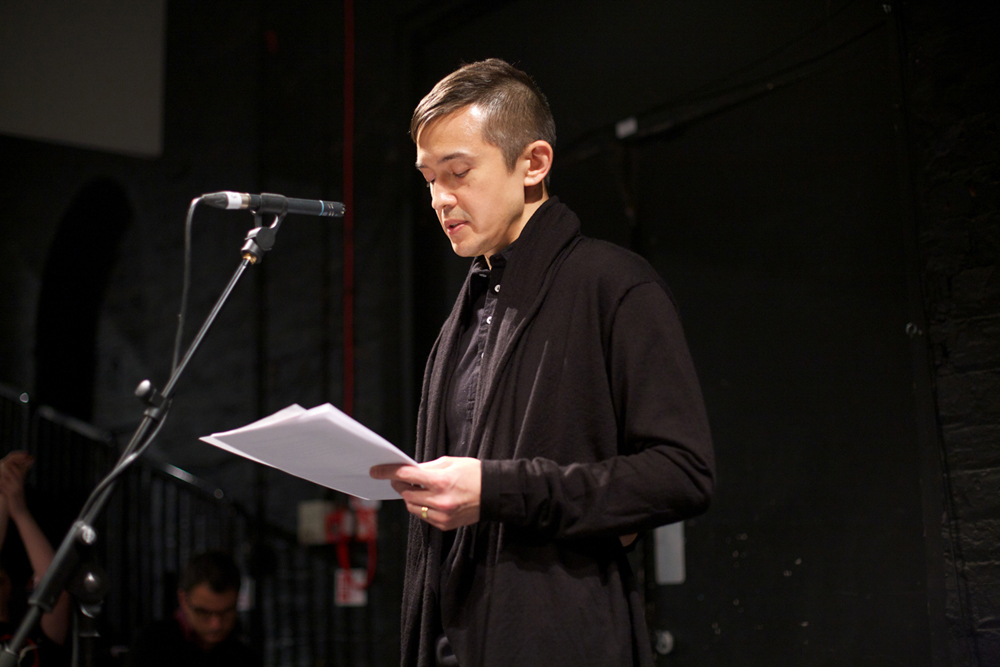
Cosmic Pessimism
Eugene Thacker
A chat with Eugene Thacker. Can we rethink the world as unthinkable, and without us?

Inhuman Grand-Guignol Theatre
Taku Unami
Inspired by the supernatural horror of H. P. Lovecraft, black metal and a sense of worry as to what constitutes an object, or a world.
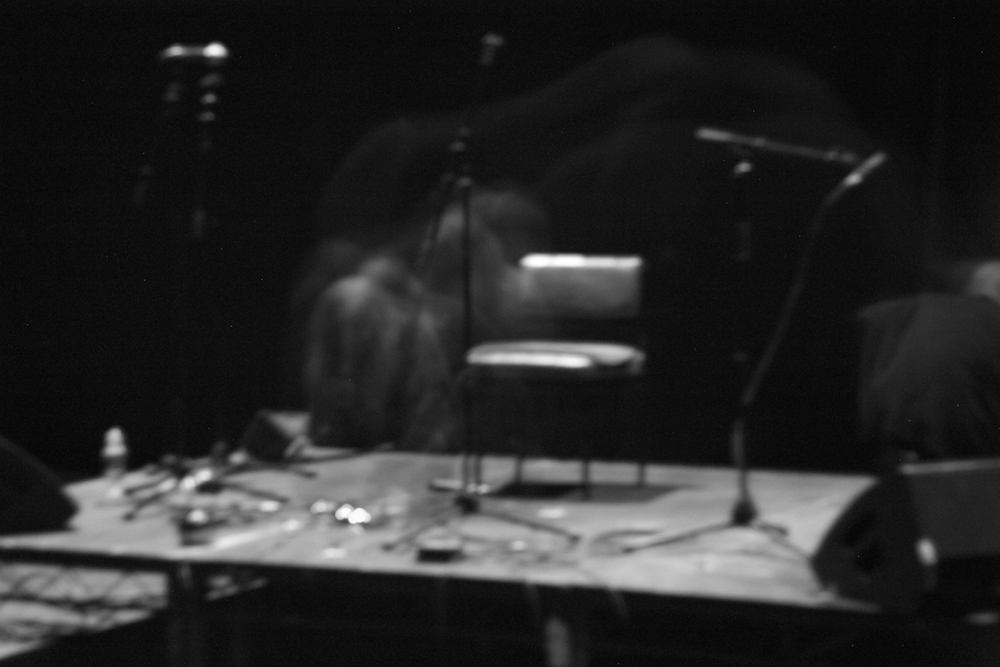
Keiji Haino
Keiji Haino
Torrential, wrenching wordless wails, guttural screams and roars, a Haino solo vocal performance.